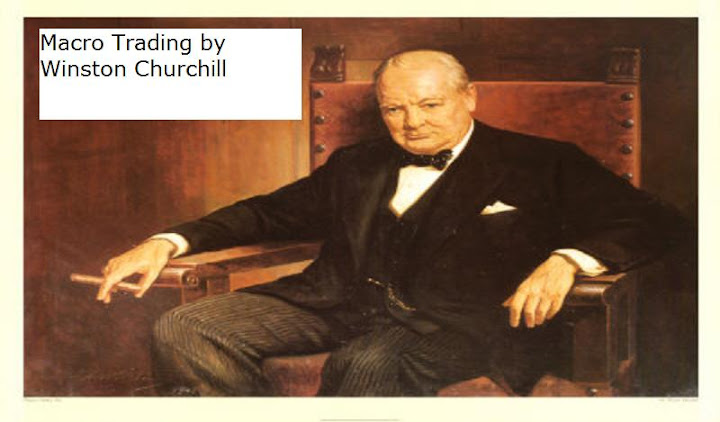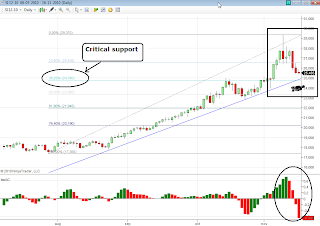A key premise for all our predictions in Limus Capital is to look at
reaction functions for present consensus:
This is my partner Jesper Christiansen and I discussion from this morning - we do not claim to know or have inside knowledge, but the reaction function will dictate whether EU survives both in the short-and long-term.
The EU is facing it's biggest test in its history and so much so that an inability to secure a 'deal' up to or at the coming summit in December will mean major consequences....
There is vested interest by EU, lobbyist, and bureaucrats around Europe to maintain status quo - who does not want tax-free, high paid simple jobs, so there will be move to save the EU certainly, but increasingly the simple truth is dawning on investors:
There are now several countries in the EU for whom being outside EU would be a benefit. When the PIIGS lose their "cheap funding" by proxy of Germany it also loses its ability to maintain excess spending - next step becomes the market gets saturated for bond issuance for this smaller Quasi-Germany's(PIIGS), and here lies central premise to our thinking: You can continue to print money only to the point by which the marginal cost of capital increases above and beyond the FAIR PRICE as seen by the individual countries....We see 5.00% nominal rates as this point....Printing money is fun while it lasts but ultimately the bill arrives.....
The reaction function of the EU in the time ahead of December 15/16 Council Meeting.....
Clearly the EU and policy makers have continued to underestimate the reaction function of both investors and market in general. QE2 rates are continuing up despite theory would dictate differently...
Game Theory dictates that Germany will need to not only move on its stance but also provide debt relief, but how will they be "paid".....
Germany debt to GDP is a reasonable 75% to GDP, it's current account 7% of GDP, and its size of the GDP 3,3 trl. USD vs EU's total of 17 trillion (19%)
We think the ONLY real solution to this issue is to GIVE money from Germany to the PIIGS - a debt swap (A debt for Euro existence swap :-)) - and before you fall of your chair laughing...hang on...:
ECB is running out of capital (Cap. reserves: 78 bln. EUR -balance sheet 1.9 bln hence leverage 1-to-27 in ECB already)... to buy and support the PIIGS bond market. They are now long 70 bln. EURO plus and about 50 bln. EURO covered debt...hence ECB needs new-buyer of last resort.
This could be EFSF, but if EFSF in the present situation starts buying PIIGS bonds it will deplete its ability to be a stand-by emergency fund... so there will be a need for further contributions to EFSF. We do not think this is likely. Germany and more to the point the Constitutional Court in Karlsruhe will come into play...
Turning EFSF into the European version of TARP is relatively elegant short-term solution as it will safe-guard and be an offer to Merkel (German banks owns the biggest chunk of PIIGS debt) to 'save' the EU but also get capital injections to the overall bank sector. It will fly best politically in our estimation but...it will not solve the solvency issue of governments - and here we come full circle as ONLY forgiveness of debt will help. It's not use to pay for your 'cousins overdraft' for the next year or two years, if he is unemployed, faces higher and higher charges from the bank, and is down with stress!
A debt swap from PIIGS to Germany would increase solvency in PIIGS and slightly deteriorate Germany solvency - however we estimate a swap for the 250 bln. EUR worth of debt in PIIGS system would take Germany's debt to GDP from 73 pc to 85 ish.... still inside range of overall G-7 but clearly at a point where credit rating and forward looking growth would be impaired.
Whether the Germans feels this is unjust or not is not really the point. The EU is now in its worse crisis and SOMEONE needs to save it - the only person in the room is GERMANY.......what German does next will tell us where EU goes...
We remain with our scenario of the EU disintegrating before 2013 - as the most likely solution and reaction function will be a mini-max solution where EFSF gets more funding, gets expanded mandate but will fail to secure solvency both at the bank and a sovereign levels, and do not forget we are probably on a riot-point for many citizens around Europe.... so 2011 will be final test of EU, social tensions, and with increase likelihood a move towards the dramatic Crisis 2.0
Nice week-end despite all
.jpg)






























